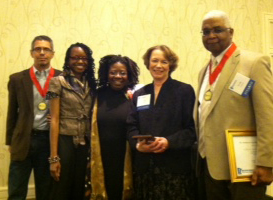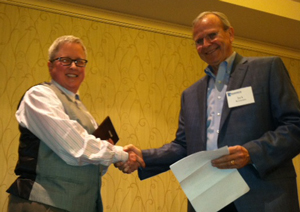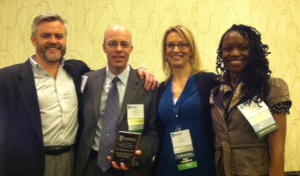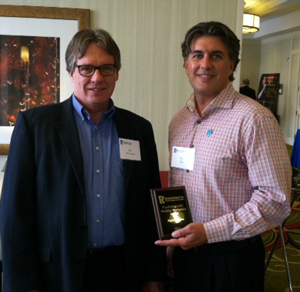From MPA's President Tabitha Grier-Reed, Ph.D., L.P.: Strategic Directions and Annual Convention Highlights
As promised, I am writing to keep you up-to-date on the strategic directions of MPA. In March, the Governing Council (GC) focused on leadership and governance. This May, the focus was on finances. Shoring up MPA’s financial situation has been a long time coming.
Financial Background
In 2011 MPA was on the brink of insolvency. The organization went from a sound financial base at the close of 2005 to a dire financial situation by October 2011. An informal audit of MPA records was requisitioned in July of 2011 and highlighted that a continuation of existing Association practices would result in a projected year-end 2012 deficit approaching $165,000. The 2011 Executive Committee took swift, decisive action and started us on the road to recovery. This included the development of a three-year plan.
Three-Year Recovery Plan
Year 2012 Objectives:
- Budgetary restraint
- Maintain essential Association functions (e.g., legislative presence)
- Assess Association systems and cash flow
- Increase financial literacy for Council members
Year 2013 Objectives:
- Continue essential Association functions
- Increase membership dues
- Improve communication and collaboration between GC members and Intrinxec (the Association Management Company)
- Reduce debt and increase cash flow
- Identify strategies to strengthen four major areas of MPA (organization structure and operations, fiscal solvency, leadership and governance, and member engagement)
Year 2014 Objectives
- Have budgetary stability
- Have improved systems to ensure cash flow for Association functions
- Establish consistency in the implementation of financial plans
- Support initiatives oriented toward the long-term sustainability of MPA’s mission
- Replenish the Association’s investment fund
Milestones
We are currently in year two of the recovery plan and making real progress on our objectives. We have continued essential Association functions and approved an increase in membership dues (which had not been increased in close to a decade and were well below other state associations). We have paid off all of our debt to Ewald Consulting (our previous Association Management Company), and in early 2013 we began to move in the direction of a positive cash flow. Finally and perhaps most importantly, MPA is solvent!
This is not a bad record as we are only half way through 2013. MPA’s 2013 GC has been focused on shoring up financial stewardship within the organization. This May, the Treasurer Scott Slattery provided financial training for Council members. The GC revised and clarified policy and procedures regarding travel, expenditure requests, and reimbursement. The GC approved a motion to budget for an audit in 2014, and approved a Whistleblower policy to protect those who speak up against wrongdoing and a Decision-Making Rubric to provide consistent criteria guiding the proposal and evaluation of new projects.
2013 Annual Convention
This year we also had a very strong Annual Convention. I want to thank my dear friend Kate Jalma who stepped up to Chair the Annual Convention Committee. “Surviving & Thriving: Psychology in the Era of Health Care Reform” was relevant and timely, and the sessions were compelling, including the keynote by APA Past-President Suzanne Bennett Johnson. In fact, a non-MPA member approached me for a membership form, stating that she enjoyed the conference so much she wanted to join the organization.
I would also like to recognize all of those who received awards.
Dr. Glenace Edwall, Diversity Leadership Award
Drs. Tom Carrillo, Willie Garrett, and Margretta Dwyer, Distinguished Elder Awards

Left to right: Tom Carrillo, Tabitha Grier-Reed,
BraVada Garrett-Akinsanya, Glenace Edwall &
Willie Garrett.
Pamela Fergus from Inver Hills Community College, Award for Outstanding Teaching of Psychology at a Community/Two Year College

Left to right: Pamela Fergus and Jack Rossman,
Chair of Academic Awards Committee
Scott Slattery, MPA Treasurer, Susan T. Rydell Award for Outstanding Contribution to Psychology

Left to right: Dan Christensen, Past President;
Scott Slattery, Treasurer; Joy Piccolino, Past
President; Tabitha Grier-Reed, President
Micah Mumper, Macalester Student, Donald G. Paterson Award in Psychology

Left to right: Jay McNamara, PHWA Committee;
Paul Blom, Owner, Right at Home
The Annual Convention Committee in concert with Sean Schuette (Intrinxec staff) worked hard to contain expenses, and the committee stayed well within the conference budget (at least on the expense side). Unfortunately, on the revenue side, the convention did not meet projections, which resulted in an overall loss. However, I am buoyed by the energy of this committee, particularly that of Mary Stevens, the 2014 Convention Chair (who has already begun to plan for 2014) and that of Jenna Buth-Croes who was so inspired by the convention that she joined the Annual Convention Committee.
2013 Presidential Initiative
I originally thought that I would not host a President’s Conference until an exciting opportunity presented itself at the APA National Multicultural Conference and Summit (NMCS) this year. Dr. Bravada Garrett-Akinsanya introduced me to Dr. Jessica Henderson Daniel (2014 candidate for APA President-Elect). Dr. Henderson Daniel has a long history of work in multicultural psychology, and for me having a multicultural perspective is not just an area of interest but who I am as a person. The opportunity to promote multicultural psychology in Minnesota through the President’s Conference and a Pre-conference workshop is exciting and meaningful to me.
President’s Conference
Jessica Henderson Daniel has accepted an invitation to speak at a one-day conference on “Individual differences: The jigsaw puzzle of cognition and affect,” Monday, November 11 in downtown Minneapolis at the University of St. Thomas. This presentation has been well received in other settings. Please mark your calendars now. There are only 200 seats available.
Pre-Conference Workshop
Martha Aby, Children’s Mental Health Clinical Capacity Development Specialist with the Minnesota Department of Human Services, has agreed to provide a half-day (9 a.m. – 12 p.m.) training on “Cultural Influences Impacting Diagnosis and Treatment Recommendations,” Saturday, November 9 at the University of Minnesota. This training will look at the required cultural influences, as described in MN Rules part 9505.0370 subpart 9, within the diagnostic assessment process for Minnesota Health Care Programs. Clinicians who bill Minnesota Health Care Programs for Diagnostic Assessments will benefit greatly so save the date. There are only 126 seats available.
Kudos: Marriage Equality Task Force
Minnesota has made history as the 12th state in the nation to legalize same sex marriage, and MPA was at the forefront of this historic achievement through the magnificent efforts of our Marriage Equality Task Force (METF). Below is just a sample of their accomplishments.
- Made MPA the first mental health association to oppose the marriage amendment.
- Developed MPA position paper on marriage amendment.
- Educated members at 2012 Annual Convention: Marriage Equality Program Track
- Published letters in major and community newspapers.
- Developed Marriage Equality Legislative Talking Points distributed at 2013 MPA Annual Convention and via e-blasts.
- Helped 2013 MPA Annual Convention attendees contact their legislators on site to ask them to support marriage equality bills.
- Provided testimony on psychological research related to marriage equality at the state legislature
Thank you, METF!
Seeking New Talent
- If you are skilled in raising revenue or developing sponsorship programs, consider joining the Annual Convention Committee.
- MPA is also seeking new talent for the 2014 positions of Treasurer and Secretary.
- Contact me to find out more or go online and complete the Volunteer Application.





